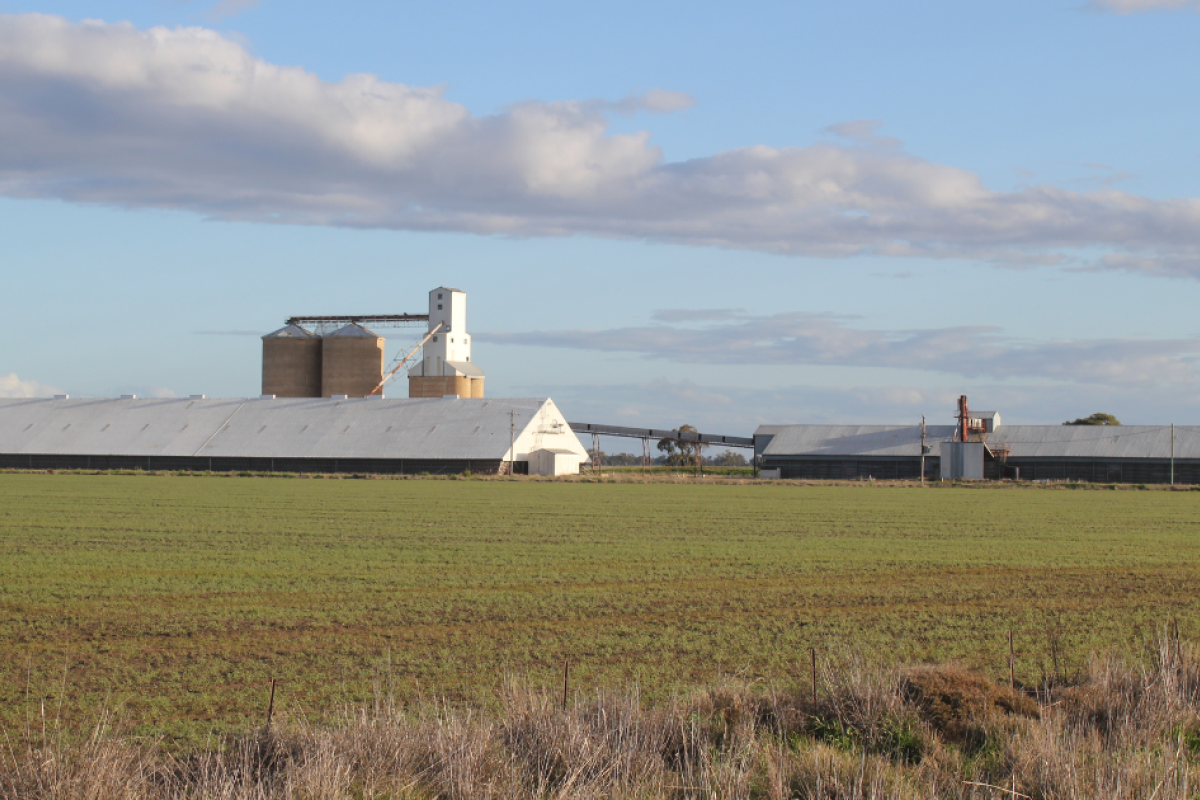Agricultural
5 August, 2024
Curban Farmers Co-op dissolving
The Curban Farmers’ Cooperative is to be dissolved in the coming month, following an auction of current assets.

The Curban Farmers’ Cooperative is to be dissolved in the coming month, following an auction of current assets. Christie and Hood property agency has been appointed to run the auction of the Curban Co-op’s estate. Paul Alchin, responsible for the auction, has said that the auction is to be held online and will include the old seed cleaner and grader, and way-bridge. “The [co-op] is being wound up… assets are being sold off; the land, the shed, the seed cleaner and grader, and the old weighbridge; they’re all being sold,” said Paul.
Gwenderlyn Hood, the last secretary of the Curban Farmers Cooperative since 2012, explained why the Cooperative was dissolving. “We’ve been through the Department of Fair Trade, and now [the co-op] is to be sold after not operating for a couple of years,” she said. “We’re currently under liquidation through Ryan and Rankmore.” Liquidation is the process of bringing a company to an end by finalising affairs, selling assets, and distributing the returns appropriately to stakeholders.
Max Zell, one of the original seven directors of the Curban Farmers’ Cooperative, was happy to give comments on the long history of the co-op. “It started off around 1969,” began Max. “We started as part of the United Farmers and Woolgrowers Association.” The United Farmers and Woolgrowers Association would later merge with the Grazier’s Association of New South Wales in 1978 to form the Livestock and Grain Producers Association of New South Wales. “From there, we formed a committee over a couple of years,” he said. “Later, [the committee] made the decision to go ahead and build the cooperative. We talked to the registrars about what was required to form a cooperative. It took a lot to get registered because each time we went to them they had something else required to register us. From there, we got plans to build a grading plant.”
Max explained that the concept behind their operation was to clean the grain – that is, to remove all materials other than grain – before selling it on to buyers such as the Grain Elevators Board, which has since become Grain Corp. “That’s what the cooperative is – a grain cleaning plant,” he said. “We got quotes to build it and begun sourcing funds. The Commonwealth Development Bank was our main investor, but they needed a guarantee, so we took out what was called a government guarantee. You could get that sort of thing back then,” he said. “We started off very slow because chemicals were very new, and there were very few chemicals around in the market. We were dealing with [seed] such as poppy and black oats that first year. There was a certain amount you were allowed in a pint of grain. We stored all of the off grains on my property for a while.”
In the first year of the cooperative, Max estimated that they sold over 100 tonnes of off grain, raising the funds for larger silos. The silos were used to store the screenings from the plant until such a time where they could be sold off. “At one stage, we had about 130 members, and over the years that has dribbled down,” he said. “Originally it was $100 to become a member, and in later years, we used to ask for $300 because that was the average share holding of the members.” “We employed a person to operate the grain plant during the harvest period, then off season we offered the plant [to farmers] so they didn’t plant weed seeds in their fields. We operated for 12 to 15 years before we were out of debt and able to start paying dividends to our members.”
As chemical cleaners expanded their prevalence and diversity in the market, the need for grain cleaning plants such as the one operated by the Curban Farmers Cooperative slowly dwindled. The grain delivered to buyers such as GrainCorp was already much cleaner than before, without the need to go through a processing plant. In the end, the grader become only useful for cleaning seed. “The co-op is closed down and the committee is looking to sell,” Max said. “I knew this was going to happen from a few years back.” “I started off as the secretary, then became treasurer, and then chairman. I used to operate the plant myself at times when we didn’t hire an operator. I put a lot of maintenance hours into the grader myself.” “[The Curban Farmers Cooperative] has been an important part of our industry. The land it was built on, it was originally travelling stock reserves, where people brought in sheep to water in the trough. And the prime wheat association back in those days, they bought an office on our land… that was good for us, because they tested the grain before it came to our elevators.” “There’s a lot of history tied in with that grading plant,” said Max.


